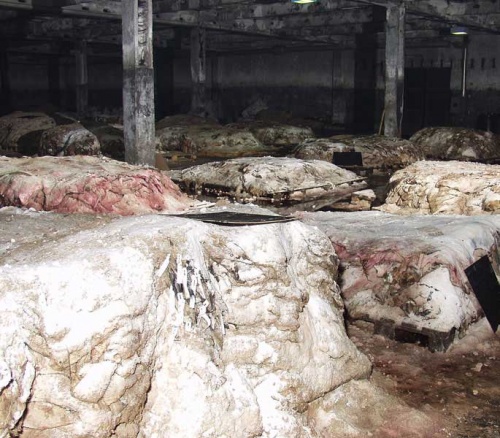Difference between revisions of "Salt stains on shoes and boots"
| (One intermediate revision by one user not shown) | |||
| Line 21: | Line 21: | ||
<p align=center> | <p align=center> | ||
| − | [[bild:Salzkonserv.jpg| | + | [[bild:Salzkonserv.jpg|500px]] |
| − | [[bild:Rohhaut-gesalzen-01.jpg| | + | </p> |
| + | <p align=center> | ||
| + | [[bild:Rohhaut-gesalzen-01.jpg|500px]] | ||
</p> | </p> | ||
<p align=center> | <p align=center> | ||
| Line 32: | Line 34: | ||
<p align=center> | <p align=center> | ||
| − | [[bild:Leder-Schneerand-01.jpg| | + | [[bild:Leder-Schneerand-01.jpg|500px]] |
| − | [[bild:Leder-Schneerand-02.jpg| | + | </p> |
| + | <p align=center> | ||
| + | [[bild:Leder-Schneerand-02.jpg|500px]] | ||
</p> | </p> | ||
<p align=center> | <p align=center> | ||
| Line 40: | Line 44: | ||
<p align=center> | <p align=center> | ||
| − | [[bild:Tunschuhe-Schneerand02.jpg| | + | [[bild:Tunschuhe-Schneerand02.jpg|500px]] |
| − | [[bild:Tunschuhe-Schneerand03.jpg| | + | </p> |
| + | <p align=center> | ||
| + | [[bild:Tunschuhe-Schneerand03.jpg|500px]] | ||
</p> | </p> | ||
<p align=center> | <p align=center> | ||
| Line 54: | Line 60: | ||
<p> </p> | <p> </p> | ||
| − | == [[ | + | == [[leather videos|Videos]]== |
<p align=center> | <p align=center> | ||
<flashow>//www.youtube.com/v/FdwWvFRepBs&fs=1&color1=0x660000&color2=0x550000&border=1|width=500|height=281,25</flashow> | <flashow>//www.youtube.com/v/FdwWvFRepBs&fs=1&color1=0x660000&color2=0x550000&border=1|width=500|height=281,25</flashow> | ||
| Line 60: | Line 66: | ||
<p align=center> | <p align=center> | ||
''[https://www.colourlock.com/tip/shoes-and-bags/shoe-and-boot-care.html The cleaning of suede shoes].''</p> | ''[https://www.colourlock.com/tip/shoes-and-bags/shoe-and-boot-care.html The cleaning of suede shoes].''</p> | ||
| − | |||
| − | |||
| − | |||
Latest revision as of 17:06, 28 November 2022
Salt stains and lines can occur on leather shoes and other leather objects. This is typically found on shoes in the winter time.
Several causes can be considered for the formation of salt lines, although the reasons have not yet been investigated:
- One reason could be salts, or other minerals, which are introduced into the leather in the tannery. Salts are used for the preservation of leather before tanning. In the tanning process itself, salts are also used to fill the leather and to loosen the fibres.
- Another reason might be salt on roads in the winter time. Leather becomes wet from the salt-soaked snow and, when drying, salt stains and lines become visible.
- Sweat also contains minerals and salts and can promote salt stains.
In winter, several sources promote salt stains on shoes. Salts in the leather during production, the perspiration of the feet, which is absorbed by the leather over a longer period of time, the salt on streets against ice and snow and the overall damp weather, which makes the leather absorb moisture.
Salted rawhide in the tannery.
Cleaning and getting rid of these stains is uncomplicated because salts are water-soluble and can be cleaned off or washed out with leather cleaner or a leather washing detergent.
Salt lines on a leather bag where mineral water has run out. Sweat and salt from winter roads can be excluded as causes. The salt must come from the tanning process.
Salt stains on leather sneakers. Sweat or salt on winter roads may have caused the soiling.
Salt stains in a leather hat caused by sweat.
Videos
Additional information
![]() -> COLOURLOCK - The cleaning of suede shoes
-> COLOURLOCK - The cleaning of suede shoes
















 a kotori web solution
a kotori web solution